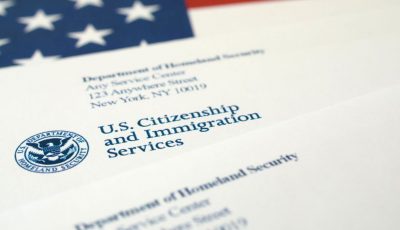USCIS urges re-parole
U.S. Citizenship and Immigration Services is urging parolees who want to maintain their immigration status beyond Oct. 28, 2019, to submit a re-parole request as soon as possible.
With the parolee program extension ending last Oct. 28, 2019, USCIS told Saipan Tribune in a statement that individuals who wish to maintain their parole status beyond the final extension date have to submit a re-parole request as soon as possible.
“Individuals who submit a re-parole request will receive a letter from USCIS granting parole, unless there is a specific reason to deny the request as determined on a case-by-case basis. USCIS will grant parole with an expiration date no later than June 29, 2020,” a USCIS statement noted.
USCIS did not respond to requests to clarify the proper courses of action for a parolee who has not received a response for a 2018 re-parole request.
However, the USCIS representative noted that parolees who wish to work beyond Oct. 28, 2019, or who do not have an Employment Authorization Document must file USCIS Form I-765, or an Application for Employment Authorization.
“Form I-765 should not be filed until after the parolee has requested and received a grant of parole beyond Oct. 28, 2019, but it should be filed as soon as possible after receiving the letter granting parole,” USCIS said.
The USCIS representative further noted that individuals who are eligible for the new CNMI Resident Status under the NMI Long-Term Legal Residents Relief Act, or Public Law 116-24, will have to wait in the “coming months” for more information and the announcement of the procedures to apply for this status.
P.L. 116-24 was signed into law last June 25, 2019. The legislation allows eligible parolees to apply for a permanent resident status exclusive to the CNMI. However, USCIS has yet to issue the necessary regulations to allow eligible parolees to apply for permanent resident status, hence the need to apply for re-parole beyond the Oct. 28, 2019 extension deadline.
P.L. 116-24 was written with the intent to provide permanent status in the NMI to parents and spouses of U.S. citizens, in-home caregivers, certain stateless individuals, and immediate relatives of people that are granted permanent status by CNMI immigration law. In total, Delegate Gregorio Kilili C. Sablan (Ind-MP) noted that this legislation affects 1,039 individuals in the CNMI.
The legislation was passed after almost five months of discussion in the U.S. Congress.
Sablan sponsored the bill last Jan. 15, 2019. It passed the U.S. House of Representatives on June 3, 2019. The Senate passed it on June 24, 2019, and it was enacted two days later.



























